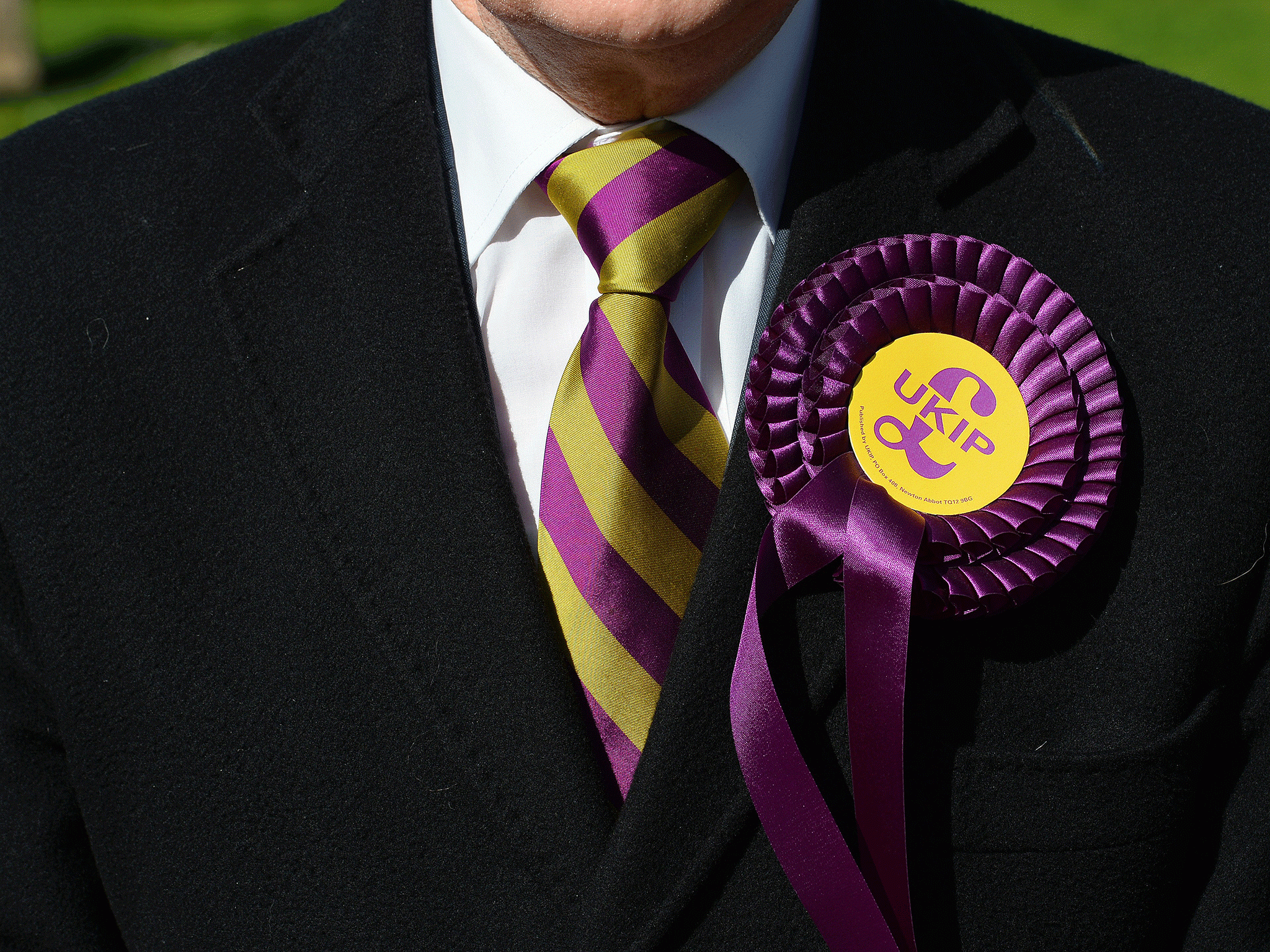'Virtually dead' Ukip puts forward 75 per cent fewer candidates for local council elections
'To all intents and purposes, it would appear that Ukip are virtually dead as an election fighting organisation'

Your support helps us to tell the story
From reproductive rights to climate change to Big Tech, The Independent is on the ground when the story is developing. Whether it's investigating the financials of Elon Musk's pro-Trump PAC or producing our latest documentary, 'The A Word', which shines a light on the American women fighting for reproductive rights, we know how important it is to parse out the facts from the messaging.
At such a critical moment in US history, we need reporters on the ground. Your donation allows us to keep sending journalists to speak to both sides of the story.
The Independent is trusted by Americans across the entire political spectrum. And unlike many other quality news outlets, we choose not to lock Americans out of our reporting and analysis with paywalls. We believe quality journalism should be available to everyone, paid for by those who can afford it.
Your support makes all the difference.Ukip will stand 75 per cent fewer candidates for next month's local elections than just four years ago – prompting the claim the party is ‘virtually dead”.
The crisis-hit anti-EU party is on course to contest only about 550 seats across England – or 12 per cent of the total – down from 2,193, at its height in 2014.
Even in former strongholds, such as Sunderland, Hyndburn in Lancashire, Nuneaton in Warwickshire, and Fareham in Hampshire, Ukip is fielding either no candidates or just one or two, an analysis shows.
In Liverpool, Wolverhampton, Maidenhead and Colchester, it will fail to fight any seats, said Lord Hayward, a Conservative pollster.
“To all intents and purposes, it would appear that Ukip are virtually dead as an election fighting organisation,” he said. “It confirms the disastrous fall of Ukip from public attention,"
Ukip scored 17 per cent when the equivalent seats were last contested, in 2014, when the party was led by Nigel Farage, but has since imploded, losing no fewer than three leaders.
It was forced to turn to members to raise emergency funding to meet huge legal bills which threatened the party with bankruptcy.
Gerard Batten, the interim leader, has claimed that the party is “now safe” after raising over £300,000 from its 20,000 subscribers.
In a statement, he said: “Six weeks ago we had no local election campaign planning in place. In a short space of time, the party has rallied and organised a respectable number of candidates.
“We will be campaigning hard to retain those seats we are defending, and fighting to win some new ones.”
The collapse of Ukip is expected to help the Conservatives escape heavy losses outside London, in the elections on 3 May.
However, the Tories are heading for their worst ever local election results in the capital, as new younger voters desert the party, Lord Hayward has predicted.
The number of Tory councillors in the capital is expected to fall below the 519 seats the party held in 1994, as John Major’s government fell apart in bitter splits over Europe.
At least three London councils are expected to fall to Labour and the Liberal Democrats in May, with the Conservatives also facing a fight to cling onto the flagship town halls of Wandsworth and Westminster.
London’s fast-changing population – with a dramatic influx of younger voters, who are largely pro-Labour and pro-EU – leaves the Tories vulnerable to an historic defeat.
Nevertheless, Theresa May is expected to survive the near-meltdown, provided the Tory vote holds up outside London, rather than face the leadership challenge once predicted.
She has enjoyed a boost to her standing from her tough stance against Russia over the poisoning of Sergei Skripal and her position has also been stabilised by progress in the Brexit negotiations.
Join our commenting forum
Join thought-provoking conversations, follow other Independent readers and see their replies
Comments